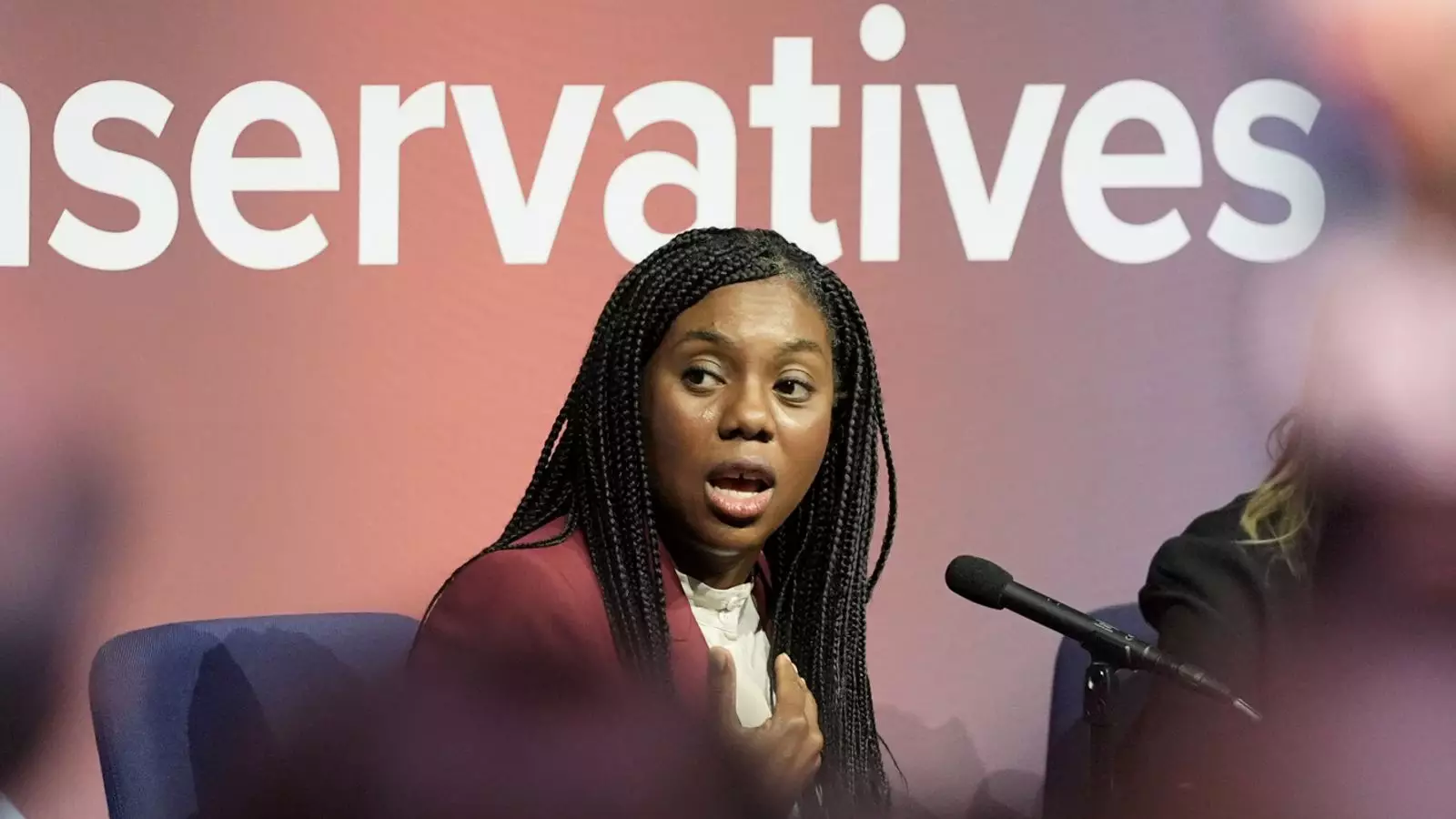In the realm of British politics, few topics ignite discussion and conflict like the so-called “culture wars.” Recently, Kemi Badenoch, a prominent figure within the Conservative Party and a leading candidate for party leadership, intensified these cultural tensions with her incendiary comments regarding the civil service. Badenoch’s assertion that 5-10% of civil servants are “very bad” and deserving of imprisonment resonates deeply in an era where trust in institutions is waning and accusations fly freely. This article seeks to explore the implications of her remarks, the backlash they generated, and the broader context of her political positioning.
During an event organized by the Spectator magazine, Badenoch alleged that a faction of civil servants is responsible for leaking official secrets and undermining government authority. Such claims are serious; they call into question not only the integrity of civil servants but also the broader structure of accountability within the government. Badenoch’s comments suggest a need for reform within the civil service, pointing to a perceived rot that threatens the efficacy of the government apparatus. However, this assertion can also be seen as a tactical move in her bid for leadership, as she positions herself as a bold, candid candidate willing to challenge the status quo.
Badenoch’s comments were not limited to pointing out the alleged failings of civil servants. She differentiated between the “magnificent” majority and the small minority she described as “bad.” This dichotomy attempts to validate her broader claims of a failing civil service while simultaneously appealing to those within the Conservative Party who have grievances with governmental institutions. Yet, framing a segment of civil servants as potential criminals invites skepticism from those who argue that such sweeping generalizations lack empirical backing.
The Backlash: A Call for Evidence and Accountability
Badenoch’s remarks quickly drew sharp criticism, notably from Dave Penman, the general secretary of the FDA union, who demanded that if she had any evidence to support her allegations, she should present it; otherwise, she ought to retract her statements. This response highlights a crucial point about political responsibility and accountability. In a climate where misinformation and baseless accusations are prevalent, calls for substantiation take on increased importance. Political figures wield significant influence, and unfounded allegations can have damaging repercussions, not just for individual reputations but for the fabric of public trust.
Moreover, Penman’s critique that Badenoch was contributing to an “irresponsible culture war” puts a spotlight on the broader implications of her statements. In a political landscape already fraught with division, the rhetoric of betrayal and disloyalty towards public servants can destabilize the essential trust that citizens must have in their government. As Badenoch continues to pursue her leadership ambitions, her cavalier treatment of such serious accusations raises questions about the ethical considerations in her political strategy.
Kemi Badenoch’s rise within the Conservative Party is emblematic of a larger trend towards populism and straight-talking rhetoric. Positioned alongside other candidates like Robert Jenrick and James Cleverly, she has cultivated her image as an honest, candid figure unafraid to challenge conventional political norms. However, her approach may come with risks. The precarious balance between appealing to core Conservative values while broadening her support base necessitates tact. Making excessive claims against civil servants could alienate moderate party members and voters who value integrity and accountability.
As Badnoch vies for leadership after the Conservative Party’s recent electoral challenges, the stakes are high. She must navigate conflicting pressures: maintaining a firm stance that galvanizes support while ensuring that her approach doesn’t devolve into reckless hyperbole. Polls suggest that while she enjoys a lead, the competition remains fierce, which may compel her to amplify her statements to distinguish herself further.
The current discourse surrounding Badenoch’s assertions serves as a microcosm of the debates playing out in British politics and beyond. Her strong claims against civil servants not only reflect her personal convictions but also the charged atmosphere in which political discussions are situated. As political entities maneuver for power, the risk of fostering division through sharp rhetoric becomes increasingly pronounced. It is crucial for leaders to demonstrate accountability and a commitment to evidence-based dialogue to strengthen public trust and foster a more constructive political environment. Badenoch’s challenge will be to grow her support without devolving into the contentious culture wars that only serve to fragment the political landscape further.


Leave a Reply